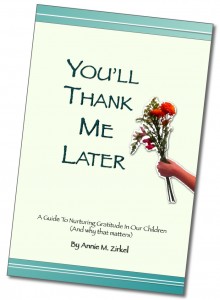Dear Annie,
 Yesterday in the grocery store, I witnessed a bad interaction between a mother and her 4ish year old son. He was getting whiny about not getting a cereal that he wanted and mom told him he was being a brat. It got worse from there with the child defying her and trying to put the box in the cart anyway and mom's temper flaring. She didn't do anything excessively physical but she was clearly losing it. Being a mom myself, I try not to judge because we can all lose our cool sometimes, and I wanted to help but couldn't think of what I could say.
Yesterday in the grocery store, I witnessed a bad interaction between a mother and her 4ish year old son. He was getting whiny about not getting a cereal that he wanted and mom told him he was being a brat. It got worse from there with the child defying her and trying to put the box in the cart anyway and mom's temper flaring. She didn't do anything excessively physical but she was clearly losing it. Being a mom myself, I try not to judge because we can all lose our cool sometimes, and I wanted to help but couldn't think of what I could say.
In your opinion, is there anything helpful an outsider can say or do when they see a parent and child losing it like this? - Helpless Bystander
Dear Bystander,
I commend you for wanted to get involved because this can be a tricky situation. Boundaries are such that your support could easily be met with defensiveness and hostility. But as long as you go in with more empathy than judgment, and your expectations about your impact are reasonable - in that you don't expect to change this parent's skills with one 30 second exchange, you may be able to help.
When a person is worked up - whether it be the parent or the child - the immediate task is to try to diffuse the situation. Being a counter weight to the tension can be helpful and should be the goal. Now HOW do you do that?
In searching for inspiration on this question, I came across a great community program in Ramsey County, Minnesota called the Wakanheza Project . The idea is to help community members, places of business, congregations, schools, libraries, family attractions, health centers, etc. join in to support children and parenting by making the world more parent/child friendly. (Click here for a 30 minute video on this project.)
Strategies include: making environments less tantrum-inducing (like non-candy check out isles, children's shopping carts, just the right amount of stimulation),having children's books and (sanitized) toys available, and training people to support parents by holding doors, smiling, empathizing and making encouraging statements like - 'parenting is tough' or 'your kids are really being patient'.
One part of the program worked with librarians, giving them quick reference cards with 4 great reminders on what to do during a tense parent/child moment. Here they are with some additional comments:
- Avoid Critical Judging - Judging and helping are not a great combination. Although to be fair, if you have some understanding of effective parenting and you witness someone NOT doing that - it is reasonable and natural to judge it as such. The challenge is that while we would like parents to always do their jobs well, being critical is counterproductive to that goal and forgets the reality that no parent is perfect. So you have a choice: you can push that parent away with blame and shame or you can attempt to connect with empathy and compassion.
- Distract, Redirect, (and Help Out) - Especially before tensions have risen and with younger children: playing peek-a-boo, making a funny face, performing a quick magic trick if you have the skill, or directing the child's attention to something of interest can help. In one article from the site, a bystander got a child to help bag at the end of the belt to distract him from the candy that was instigating a tantrum. Offering to let a parent go ahead in line or commenting about something else, like the price of milk, can sometimes diffuse a tense moment. One important note: These strategies are for momentary meltdowns, not abusive parenting. If the exchange seems to have crossed the line into child abuse, contacting authorities may be warranted.
- Offer Assurance - Facial expressions that convey understanding, an appreciation of the challenges of parenting, or a 'feeling for you' look, can help a parent feel less vulnerable and isolated. Sharing a brief, similar story of your own can also help put a parent at ease
- Show Empathy - Offer a perspective that supports both parent and child - Statements like 'Being in a store for a long time with kids is challenging!', 'They make cereal boxes so fun-looking! It's hard to resist!' or 'He sure does have a strong-will' can help put a positive spin on the behavior.
Raising parents up offers many more benefits that putting parents down. Creating a more welcoming world to offset the stresses of parenting is a great goal. Again, I commend you for wanting to be part of that support. I hope you found some good ideas for next time.
Take care, Annie
Annie Zirkel, LPC is a Speaker, Author and Relationship Consultant based in Ann Arbor, Michigan. She is available for consultation and to answer your questions. You can contact her at annie@practicehow.comThis e-mail address is being protected from spambots. You need JavaScript enabled to view it This e-mail address is being protected from spambots. You need JavaScript enabled to view it .
 The other day while walking my dog in a public park I saw a boy of maybe 11 years old climb on top of a public fountain and stand on it and shout, "Look at me!" (I guess he was showing off for a girl.) This kid weighed at least 150 pounds and the fountain was free standing and very nice having been installed a couple of years earlier by the city. It was not fragile but it was not built for climbing.
The other day while walking my dog in a public park I saw a boy of maybe 11 years old climb on top of a public fountain and stand on it and shout, "Look at me!" (I guess he was showing off for a girl.) This kid weighed at least 150 pounds and the fountain was free standing and very nice having been installed a couple of years earlier by the city. It was not fragile but it was not built for climbing.




